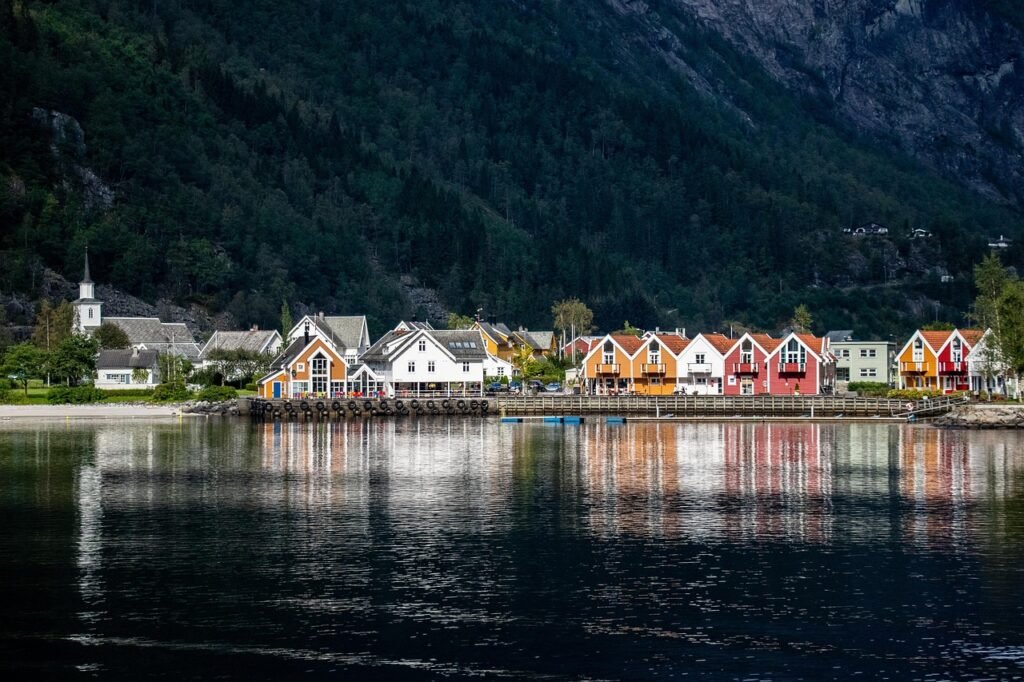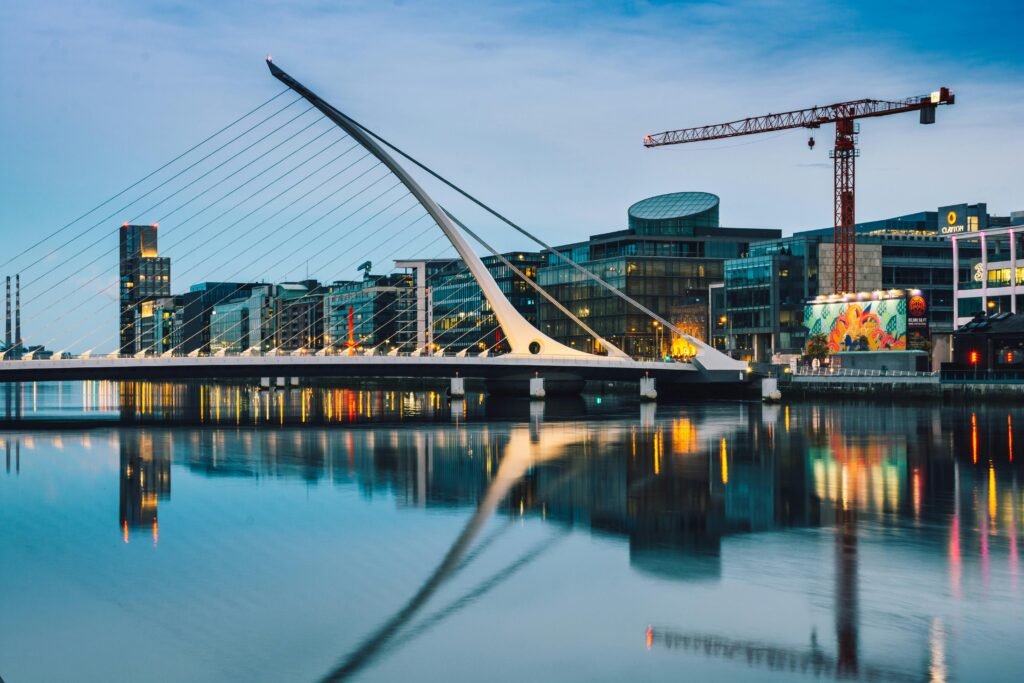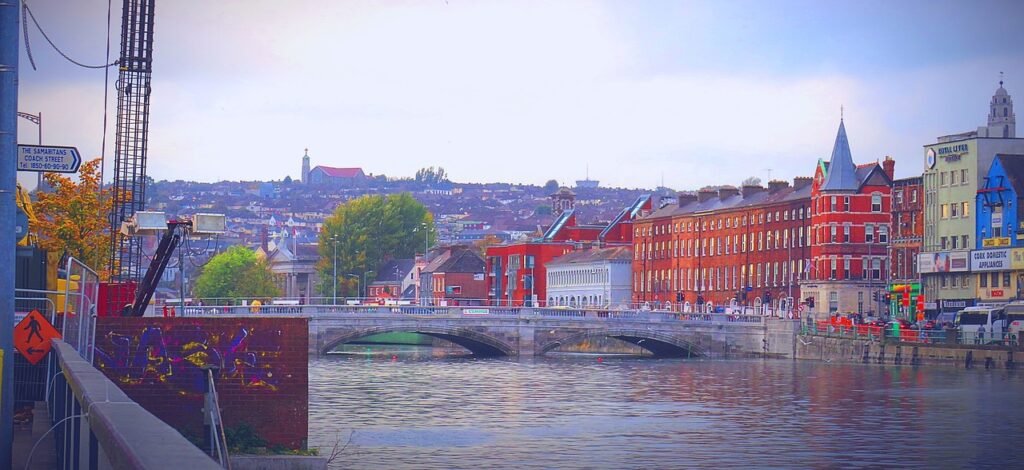Why Study in Morocco?
Morocco offers affordable, high-quality education in a culturally diverse and historically rich setting. With a growing number of English- and French-taught programs, especially in fields such as engineering, medicine, business, IT, and social sciences, Moroccan universities are becoming an increasingly appealing choice for international students from Africa, Asia, and beyond. Tuition fees are generally moderate, and the overall cost of living is relatively low compared to many Western countries.
Students in Morocco benefit from strong academic traditions, modern university campuses, and a welcoming multicultural environment. Its strategic location between Europe and Africa offers unique opportunities for academic collaboration, internships, and travel. Studying in Morocco can serve as a launchpad for careers in North Africa, the Middle East, or Francophone regions, with post-study pathways that include work opportunities and options to continue studies in Europe through various partnerships and exchange programs.
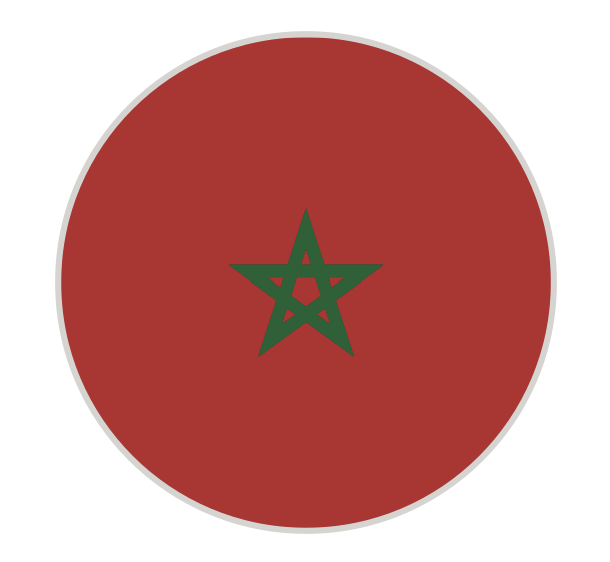
- Study in
Morocco
Study Programs in Morocco
Study Programs in Morocco for International (including Bangladeshi) Students:
Schooling / Primary & Secondary Education
Morocco offers public, private, and international school options. International schools follow curricula such as the British, American, or French systems, and are concentrated in major cities like Casablanca, Rabat, and Marrakesh. Public schools are free for residents and primarily use Arabic or French as the medium of instruction, while international schools charge tuition fees.
Diploma & Vocational Programs
Morocco has a growing number of technical and vocational training institutions that offer diploma programs focused on employable skills in sectors such as mechanical engineering, construction, agriculture, IT, tourism, hospitality, and health sciences. These programs are available in both Arabic and French, with a limited number in English.
Bachelor’s Degrees
Moroccan universities and private institutions offer undergraduate programs in diverse fields such as engineering, business, economics, computer science, architecture, and international relations. Programs are usually taught in French or Arabic, with English-taught programs increasing gradually in select institutions. Degrees generally follow the LMD (Licence-Master-Doctorat) system aligned with global academic standards.
Master’s Degrees
Postgraduate programs in Morocco are available in both public and private institutions, with many programs taught in French and some in English. Popular areas of study include renewable energy, engineering, public health, economics, education, and applied sciences. Moroccan master’s degrees are recognized across North Africa and increasingly in European and Middle Eastern institutions.
PhD Programs
Doctoral studies in Morocco are offered at public universities and specialized research institutions. Fields include science and technology, humanities, social sciences, and Islamic studies. PhD programs are research-intensive, with some offering international collaborations and joint degrees with European universities. Research funding or scholarships may be available for eligible international candidates.

- Study in
Morocco
Step-by-Step Guide
🇲🇦 Step 1: Research Universities and Programs
Explore Moroccan public and private universities offering programs in Arabic, French, or English. Identify institutions that align with your academic background and career goals. Popular fields for international students include engineering, business, agriculture, Islamic studies, renewable energy, and health sciences.
🇲🇦 Step 2: Check Eligibility Requirements
Review academic admission criteria, language requirements (typically French or Arabic proficiency, or English for select programs), GPA thresholds, and specific prerequisites related to your chosen course.
🇲🇦 Step 3: Prepare and Submit Applications
Apply directly to Moroccan universities via their official websites or designated admission portals. Submit academic transcripts, passport copy, CV/resume, motivation letter, letters of recommendation, and proof of language proficiency. Ensure that all documents are translated into French or Arabic where required.
🇲🇦 Step 4: Explore Scholarships & Funding Options
Research scholarships offered by the Moroccan government, university-specific aid, and programs supported by international cooperation (e.g., Islamic Development Bank scholarships). Some scholarships are also available through partnerships with African and Asian countries.
🇲🇦 Step 5: Receive Offer and Accept Admission
Once admitted, follow the university’s instructions to confirm your place. This may involve paying a registration or tuition deposit to secure enrollment.
🇲🇦 Step 6: Apply for Moroccan Student Visa
Submit your student visa application at the Embassy or Consulate of Morocco in Dhaka. Required documents generally include the admission letter, passport, proof of financial means, accommodation confirmation, medical certificate, police clearance, and passport-sized photos.
🇲🇦 Step 7: Arrange Accommodation and Insurance
Find student housing through your university or private rental options. Purchase valid health insurance that covers your stay in Morocco, as this is often required for visa issuance and university enrollment.
🇲🇦 Step 8: Plan Travel and Arrival
Once your visa is approved, book your flight. Carry all key documents (visa, admission letter, proof of funds, insurance, etc.) when traveling. Be prepared for any entry checks and participate in your university’s orientation or onboarding sessions upon arrival.

- Study in
Morocco
🇲🇦 Average Tuition Fees in Morocco (2025)
Primary & Secondary School (International Schools)
€3,000 – €10,000 per year
International schools in Morocco follow curricula such as the British, American, or French systems (e.g., Lycée Français, American School of Casablanca). Public schools are free for residents but are primarily in Arabic or French and may not be ideal for non-French/Arabic-speaking students.
Bachelor’s Degree (Public Universities)
€1,000 – €3,000 per year
Public universities in Morocco offer affordable tuition, especially for students from partner countries. Programs are mostly in Arabic or French, but some are available in English, particularly in science and business faculties.
Master’s Degree (Public Universities)
€1,500 – €4,000 per year
Tuition varies by field and institution. Programs in engineering, public administration, economics, and science are popular. Some institutions offer English-medium instruction, especially for international partnerships.
PhD Programs (Public Universities)
€1,000 – €3,500 per year
Doctoral programs in Morocco are research-intensive and often come with scholarship or assistantship opportunities through university or government-funded research initiatives.
Private Universities / Business Schools (All Levels)
€4,000 – €12,000+ per year
Private institutions such as Université Internationale de Rabat, Al Akhawayn University, and ESCA School of Management offer degrees in English or French and charge higher tuition. Specialized programs, particularly MBAs, can exceed €15,000 per year depending on the institution.
Visa Categories for Study in Morocco

Student Visa (Visa d'Études)
Typically issued for 90 days.
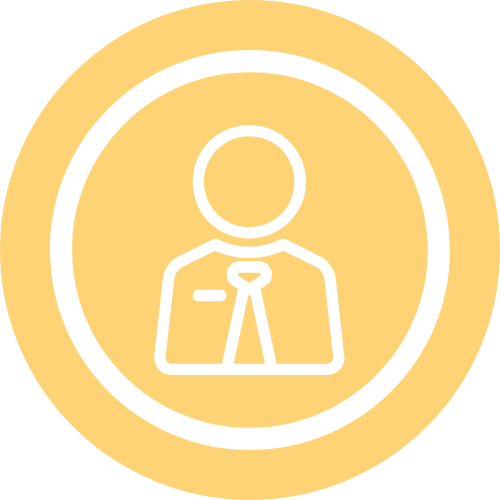
Short-Stay Visa (Visa Court Séjour)
For short-term educational visits such as language courses, seminars, or training lasting less than 90 days.
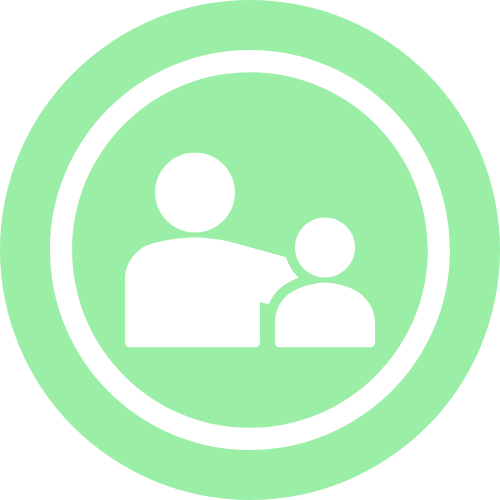
Residence Permit (Carte de Séjour Étudiant)
This is not a visa but a mandatory follow-up to the student visa for stays exceeding 90 days.
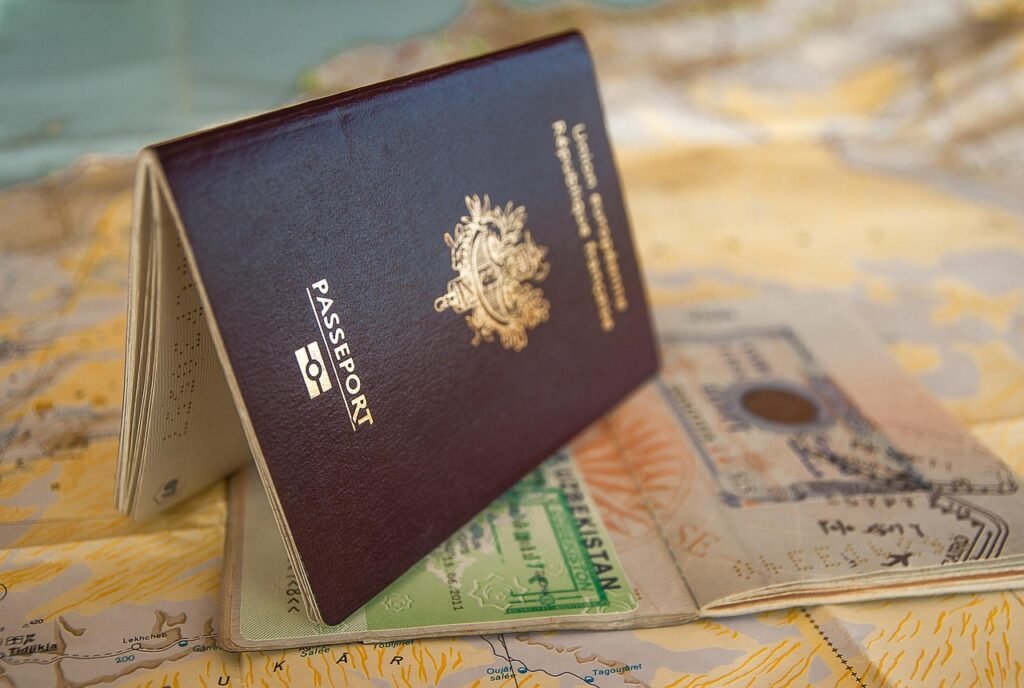
Visa Application Checklist
 Morocco Student Visa Application Checklist (Bangladesh)
Morocco Student Visa Application Checklist (Bangladesh)
Completed Application Form
Filled and signed Moroccan Long-Stay Visa (Type D) application form, available from the Embassy of Morocco in Dhaka or its official website.
Valid Passport
Must be valid for at least 6 months beyond the intended stay in Morocco and include at least two blank pages.
Admission Letter
Official letter of acceptance from a Moroccan university or accredited higher education institution confirming full-time enrollment.
Proof of Financial Means
Evidence that you can support yourself during your stay. This can include:
Recent bank statements (covering the past 3–6 months),
Proof of scholarship or financial aid, or
Sponsorship letter with financial support documents from a parent or guardian.
Proof of Accommodation
Documents showing your living arrangements in Morocco. Acceptable documents include:
University dormitory confirmation,
A notarized rental agreement, or
An invitation letter from a Moroccan host with supporting documents.
Passport Photos
Two recent passport-sized photographs in biometric format, as per Moroccan visa guidelines.
Travel Itinerary
Tentative flight reservation or travel plan. Not always mandatory, but recommended for visa processing.
Health Insurance
Proof of valid health insurance coverage in Morocco for the duration of your stay, meeting minimum coverage requirements.
Academic Certificates and Transcripts
Copies of previous academic qualifications (transcripts, certificates, diplomas) relevant to the program you intend to study.
Language Proficiency Proof
If the university requires it, submit proof of language ability:
French proficiency (DELF/DALF),
English proficiency (IELTS/TOEFL), or
Arabic proficiency, depending on the language of instruction.
Police Clearance Certificate
A recent certificate of good conduct from Bangladesh Police, translated into French or Arabic and legalized if necessary.
Medical Certificate
Issued by a certified physician stating you are in good health and free from contagious diseases. Should be translated if not in French or Arabic.
Parental Consent (If under 18 years old)
A notarized letter of permission from parents or legal guardians for minors, translated into French or Arabic.
Visa Fee Payment Receipt
Proof of payment of the visa application fee (typically around €60 or the equivalent in BDT, subject to change).
Biometric Data Submission
You may be required to submit biometric data (fingerprints and photo) at the Moroccan Embassy or Visa Application Centre (if applicable).
Additional Notes:
All non-French/Arabic documents must be officially translated and legalized if requested.
Originals may be required at the time of the interview.
Carry photocopies of all submitted documents for embassy records.
Requirements may vary slightly by individual cases or university type—check with the Moroccan Embassy in Dhaka for the most updated guidance.

- Study in
Morocco
Job and PR Pathways After Study
🇲🇦 Job and PR Pathways After Study in Morocco
Post-Study Residence Options:
Morocco does not currently offer a formal post-study work visa or job-seeking residence permit. However, students who secure a job offer before graduation may be eligible to change their residence status from student to employee, subject to approval by Moroccan immigration authorities and the Ministry of Labour.Employment Opportunities:
Morocco’s economy offers job prospects in sectors such as tourism, education, information technology, renewable energy, agriculture, automotive manufacturing, and customer service. Fluency in French or Arabic is often required, but English-speaking roles are available in international schools, NGOs, startups, and multinational companies, particularly in cities like Casablanca, Rabat, and Tangier.Work Permit (Residence Permit for Employment):
If a student graduates and secures employment, they must apply for a work permit (autorisation de travail) and change their status to a residence permit for gainful activity. The employer typically assists with this process. The job must align with the graduate’s academic background and meet the national criteria for foreign worker approvals.Permanent Residency (Carte de Résident):
Foreign nationals who have resided in Morocco legally for five continuous years may apply for a Carte de Résident, which is a long-term residence card. This status allows greater flexibility in employment and residence but does not grant full PR rights like those in EU countries. Proof of stable income, clean criminal record, and integration into Moroccan society are required.Pathway to Moroccan Citizenship:
After five years of uninterrupted legal residence, foreign nationals may apply for Moroccan citizenship, subject to meeting specific conditions, including language proficiency (in Arabic or French), cultural knowledge, good conduct, and financial stability. The process can be lengthy and requires approval from the Ministry of Interior.

- Study in
Morocco
Our Support During the Process
We’re with you at every step — from your first consultation to settling into life in Morocco and beyond, ensuring a smooth, informed, and successful journey.
Personalized consultation at every stage — We take the time to understand your academic goals, financial background, and personal preferences to guide you toward the best-fit study options in Morocco.
One-on-one support for admission, visa, and travel — Receive dedicated assistance with university applications, document preparation, student visa submissions, and travel arrangements to Morocco.
Always accessible — Connect with us via call, WhatsApp, email, or in person — whichever communication method works best for you.
Regular updates, reminders, and document reviews — Stay on track with timely updates, important deadline alerts, and expert review of your application documents to minimize errors or delays.
Post-arrival check-ins and alumni mentoring — Our support doesn’t end at arrival. We offer continued guidance and connect you with students and alumni who have successfully settled in Morocco.
Support for job search and PR planning — Get tailored advice on navigating Morocco’s employment system, building your CV/resume, and understanding post-study work or long-term residence options.


